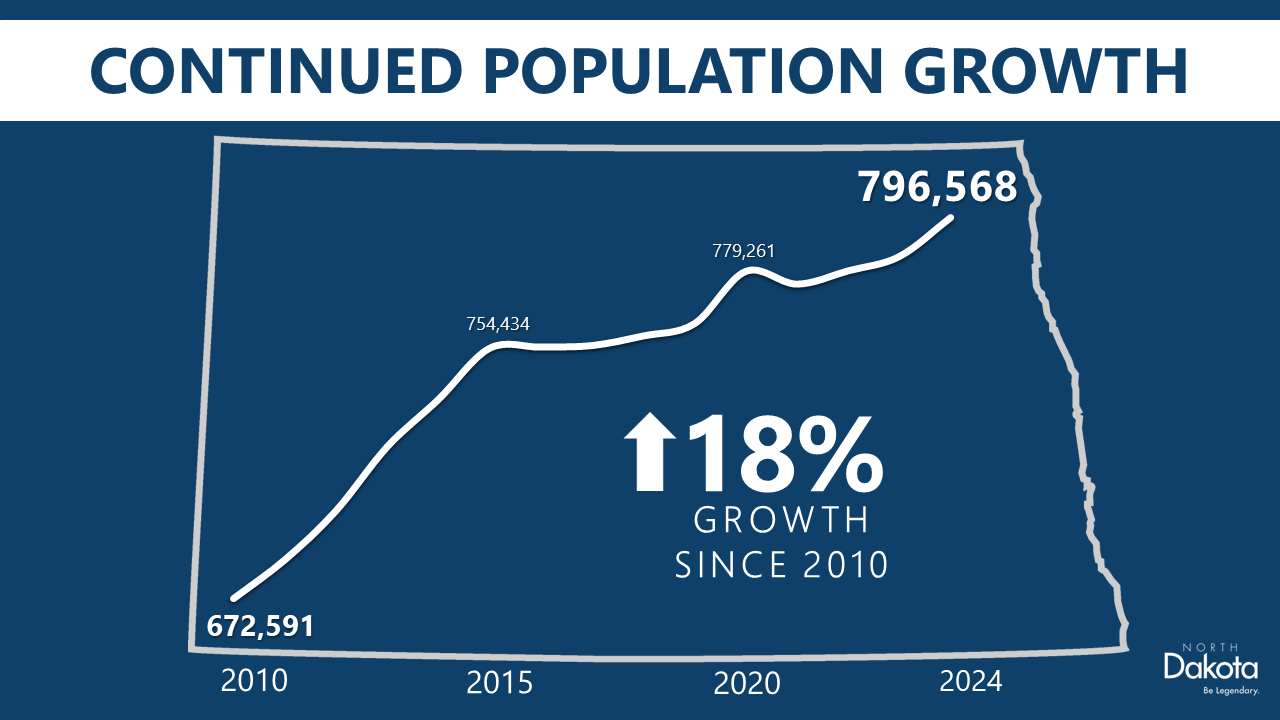BISMARCK, N.D. – Gov. Kelly Armstrong today announced that North Dakota’s population grew to a record high of 796,568 people as of July 1, 2024, marking the largest increase since 2020, according to population estimates released by the U.S. Census Bureau.
The population estimate released today exceeds the original 2023 estimate of 783,926 residents by 12,642 and represents an increase of 17,474 residents since the 2020 decennial census.
“People continue to discover North Dakota’s abundant job opportunities, low taxes, strong education and health care systems, and unmatched quality of life with world-class outdoor recreation, hunting and fishing,” Armstrong said. “We look forward to working with the state Legislature in the upcoming session to set North Dakota up for even greater success and population growth, including addressing much-needed property tax reform and relief.”
County estimates show Cass County, home to Fargo, surpassed the 200,000-resident mark for the first time, with 200,945 people, while Burleigh County, home to Bismarck, exceeded 100,000 for the third consecutive year, estimated at 103,107 residents. The two counties continued to lead the state in the number of new residents per year, with Cass County gaining an estimated 2,788 residents and Burleigh County gaining an estimated 1,623 residents. Combined, the two counties represented over 58% of the state’s estimated growth.
In the state’s oil-producing region, Williams and McKenzie counties – home to Williston and Watford City, respectively – led the state in terms of their rate of growth as a percentage of their total population, with Williams gaining 1,459 residents (3.7% increase) and McKenzie gaining 500 residents (a 3.5% increase).
North Dakota has been among the nation’s fastest-growing states since 2010, estimated to have grown by more than 18.4% since 2010. Forty-three states experienced positive growth this year.

